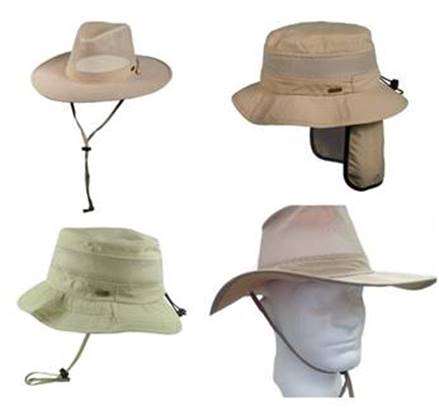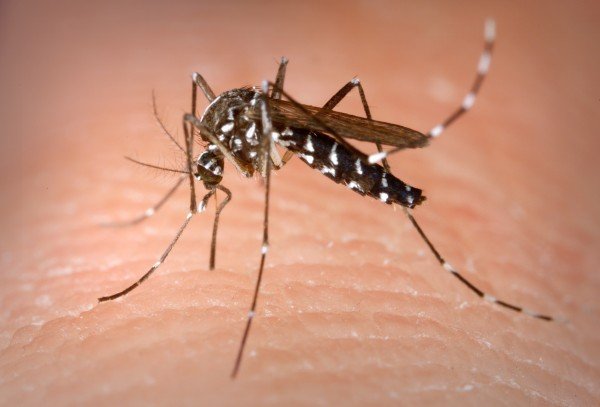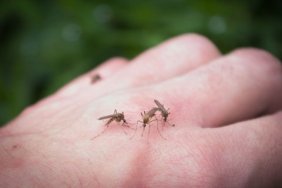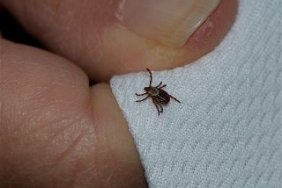With the Zika virus recently discovered in Miami, Americans are freaking out. But should outdoors enthusiasts who travel in mosquito rich areas be concerned?
The answer is probably not, but they should still take plenty of precautions because there are lots of other dangerous diseases that mosquitoes can transmit.
That was the message from Bill Donahue, an entomologist who spoke at the Outdoor Retailer Summer Market convention in Salt Lake City on Wednesday.
The dangerous virus has so far mainly affected South and Central America. It’s predominantly a concern for pregnant women as it can disrupt development of the baby. Evidence also suggests that the virus is able to pass between people without a mosquito transmitter.
Although it’s been contracted in Miami, unless you are travelling to these regions, you are unlikely to be at risk. That’s not what recent Google searches would suggest as an equal number of people from Alaska and throughout the northern United States had sought information about the virus as had those in affected areas.

“I teach this stuff to kids and whenever I tell them that mosquitoes are the most deadly animal they get this sort of dejected look on their faces,” Donahue said.
You might think bear or crocodile or even a scorpion, but no. It’s the pesky mosquito. More people are killed as a result of mosquito bites each year than are murdered. Around 725,000 people die from a mosquito bite worldwide, while roughly 475,000 die at the hands of another human.
Donahue rattled off a whole list of other diseases that are far more prevalent in the US and arguably just as dangerous such as dengue fever, yellow fever, hantavirus, chikingunya, west nile and eastern equine.
“There were 360 cases of dengue in Hawaii last year, but you don’t hear about it because it’s not what the media focuses on,” Donahue said.
These days there are lots of ways to protect yourself from mosquitoes. For those who are not so keen in lathering up in bug repellent every day, Thermacell makes an area repellent that’s a great alternative for making a relatively small area bug free.
The lanterns work by burning a repellent called allethrin, which mimics a synthetic copy of a natural repellent found in chrysanthemum plants. Other natural repellents include lemon of eucalyptus. You can also use Avon Skin So Soft, which has been found to a have mosquito deterring properties.
Photo credit: Wikimedia
10 Mosquito Repellants
-
Set up a fan

This is one of the easiest ways to make a bug trap. Position a fan with a screen over it. A box fan works best. Mosquitoes are attracted to the fan and can't pry themselves off the screen. A spray of 50 percent rubbing alcohol and they won't fly off again.
Photo credit: Flickr CC
-
Use a net and button up

This is probably the most irritable way to repel mosquitoes but it’s pretty fool proof. You can get a hat with a net on it to cover your face, but you won’t be able to see real great and you’ll look like a doofus. Consider also wearing long sleeved shirt and pants and tucking your pants into your boots. This is also a good strategy to avoid ticks.
Photo credit: Flickr CC
-
Citronella candles

One of the most effective natural mosquito repellants is the long-time favorite citronella candles. You can buy these at a retail store or you can make your own. To whip up your own patch of mosquito repellant candles simply add citronella essential oil to melted down candle wax. Use about 1 oz. of oil to 1 lb. of wax. Glue a wick to the bottom of a can and pour the wax into it. The candles release the citronella essential oils into the air, creating a natural mosquito repelling barrier.
Photo credit: Flickr CC
-
Lavender oil

Lavender oil has a wonderful aroma that is cherished by many people, but mosquitoes absolutely hate it. Take advantage of this by adding about 30 drops of lavender oil to two tablespoons of vegetable oil and rub it on your skin.
Photo credit: Flickr CC
-
Rosemary

A great way to repel mosquitoes while you’re barbequing is to add a stalk of rosemary to the grill. Mosquitoes hate it and it will also make your food taste better.
Photo credit: Flickr CC
-
Neem oil

This natural insecticide is used by gardeners to keep away mites and other insects. It can also keep mosquitoes off your skin and it’s completely harmless. Neem oil is derived through vegetable extract from the neem tree, which is native to the Indian sub-continent. Besides repelling mosquitoes, it has many health benefits as well.
Photo credit: Flickr CC
-
Eat more garlic

Even though it will likely keep more of the human species away, eating more garlic will also help repel insects. As the garlic oil releases out of your pores, the mosquitoes get the idea and avoid you like the plague.
Photo credit: Flickr CC
-
Plant an herb garden

If it’s mosquitoes you are trying to repel from your backyard, there are certain herbs that you can plant to effectively keep the bugs at bay. Consider catnip, basil, lemon balm, marigolds, rosemary, peppermint and citronella. Besides just planting these herbs in the garden you can rub them on your skin or make a tea and spray the extract on your skin.
Photo credit: Flickr CC
-
Eucalyptus trees

Along with repelling mosquitoes by the mere presence of the tree, you can treat the eucalyptus leaves and branches like you would other herbs. Make a tea out of the leaves and spray it, or try sleeping beside one of the branches. You can bring a sprig along on your next camping trip.
Photo credit: Flickr CC
-
Permethrin-treated clothing

Most bug repellant is applied to your skin or the air around you. For a repellant method that works on your clothing try spraying your clothes with permethrin. This synthetic chemical is not organic, but it is safe and it’s on the World Health Organization’s list of essential medicines. There are even hats and other clothes that contain permethrin right in the fabric such as the Stetson No Fly Hats by Dorfman-Pacific.
Photo credit: Flickr CC








